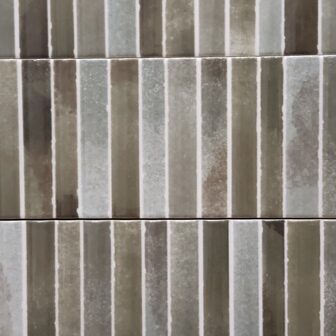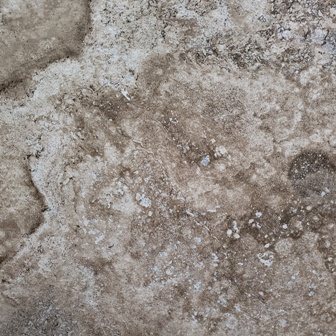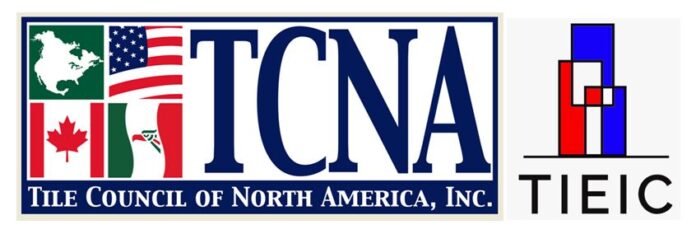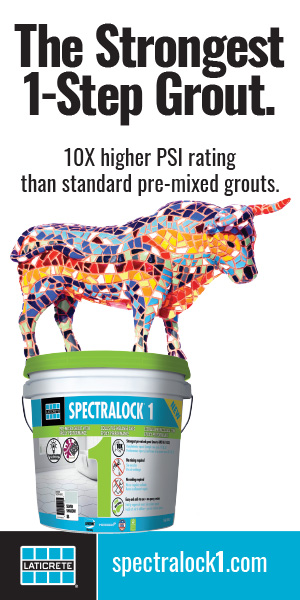On Friday, April 19, the week before Coverings, the Tile Council of North America (TCNA) reported that U.S. ceramic tile manufacturers, representing over 90% of all U.S. ceramic tile manufacturing, had filed anti-dumping and countervailing duty petitions with the federal government.
The anti-dumping petition seeks the imposition of substantial tariffs on imports of ceramic tile from India to remedy unfairly low-priced imports that have injured domestic manufacturers and flooded the market with uncertified porcelain tile – between 408% to 828%. The countervailing duty (or anti-subsidy) petition seeks the imposition of additional tariffs to remedy the impact of numerous Indian government subsidies – subsidies that have further injured domestic manufacturers.
In the announcement, TCNA Executive Director Eric Astrachan noted that American tile manufacturers have welcomed fair competition from imports. In fact, manufacturers from Italy, Spain, Brazil, Mexico and China have built factories in the U.S. to serve the North American market, fueled by local raw materials and an able workforce.

“However, Indian tile producers enjoy substantial government subsidies, which in conjunction with selling excess capacity at dumped prices, has allowed them to flood the U.S. market,” Astrachan said. “Over the last 10 years, sales of tile from India have increased from a mere 344,000 square feet in 2013 to nearly 405 million square feet by the end of 2023. Our domestic manufacturers had no alternative but to petition the federal government for relief from these unjust trading practices. The vitality of the U.S. industry and the livelihoods of thousands of employees and their families within our member companies depend on it.”
Barnes & Thornburg, trade counsel for the Coalition for Fair Trade in Ceramic Tile, said that the Federal Government will look into the allegations proposed by the petitions. If it finds that Indian imports are unfairly traded and have injured or threaten to injure U.S. tile manufacturers, the government will impose tariffs on Indian tile imports. The government would first impose preliminary tariffs in a few months and would impose final tariffs at the conclusion of its investigation in approximately 16 months, with the calculation of such final tariffs applied retroactively to the date of preliminary tariffs, and possibly to the date of initiation.
Impact on Indian suppliers to North America
Not surprisingly, the announcement of these petitions in the week preceding the Coverings show in Atlanta from April 22-25 caused a stir among Indian exhibitors and throughout the industry. During the show, TileLetter spoke to one Indian manufacturer, TIEIC, established in 1987 with factories in Morbi, Gujarat from where it exports around the world. In 2022, TIEIC established an office in Langhorne, Pa., to serve its North American clients, and markets its products with a “Made for the Americas” slogan.


Mark Scher, Brand Manager for TIEIC, discussed the situation with Tileletter and how his company is approaching this news. He said the anti-dumping situation was the first question that every customer in the U.S. and at the show was asking about. He said so much is still unknown, but several clients were still coming in and placing orders for distribution.
Scher said, “I am going to hold their orders and not produce until we have more information. Because at this point, all we have is hearsay. Until we have a preliminary decision from the government, we don’t know anything and we do not want to bring our clients any financial harm. “
TIEIC’s factory in India is “Color Tile” which cannot be used in this country due to the retailer who holds that trademark. Instead, the company markets as TIEIC, “The Indian Export Import Company.” “We have a U.S. office that is owned by the factory,” Scher explained. “So we are in a different situation because we pay taxes to the U.S. Government and employ American citizens, which puts us at a little bit different level. We also knew at some point that this was going to come, as India is exploding in its industrial revolution.”
Scher was candid about the practice of dumping in India, but was clear about distinguishing his factory from those engaging in alleged dumping practices. “There are definitely Indian manufacturers that are dumping material,” he said, adding that people tell him the price they are getting for a product and if TIEIC can match it. “The answer for me is always no,” he said. “We don’t sell products; we sell solutions, based on products. We do things that are more European designed and created more for the North American market.
“We’re not leaving this market,” he continued. Referencing Coverings, he added, “As a matter of fact, we are increasing our space 80% more for next year. We committed to that on the first day of Coverings. I think out of the 101 exhibitors that are here from India in quartz and stone and tile, maybe 10% will be back next year.”






Scher said “Color Tile” is one of the top five rated tile factories for quality in India, and focuses on manufacturing a premium product – and making it easy for North American customers to do business with them. “We have factory offices in Pennsylvania,” he said. “We are open when our clients are open, not completely different time zones.”
“We continue to get better,” he added. “We started four years ago in a 10 x 20 booth at Coverings and we keep increasing and increasing in size. This is the first time we have a real professionally-built booth. Next year, it will be better and better and better. Again, we are not giving up on this market. We have only just started.”
Scher says TIEIC will get through the antidumping hurdle, and from personal opinion — and what he was hearing during the week at Coverings — thinks the tariffs being sought are “pie in the sky.” But they will affect the importer of record.
“The tariff affects the importer of record, so it’s our customers who are affected,” he said. “But…based on what we are told from our attorneys thus far, we may decide to become the importer of record. And if we do that, all of the fears of the tariffs that are coming will subside with the clients. At this point, I can’t say that we will or we won’t, but I can say it is definitely one of the things that is on the table. We also have to make sure we protect ourselves. It’s a huge chance that you take to do that whether it’s for a client or us. Nothing has been finalized since [the petition] has just been sent to the government and there’s no preliminary anything. We expect to know by the beginning of June of the preliminary tariffs, and then we have to take it from there.”




In a letter sent to clients on Monday, April 29, Scher strongly assured, “WE DO NOT DUMP! Some of the points of anti-dumping include if the factory is profitable as well as if the factory is selling exports for more than they sell in their own domestic market, and if the government heavily subsidizes the factories. In all of these main points we are not guilty at all. But since the petition is in place for ALL Indian manufacturers, then all are included in the initial investigation.” He explained that TIEIC has consulted International Law Trade Attorneys in both India and the US to help the factory get the best result in the end.
“Our factory is not just willing to open the books for the investigation, but encourage this to happen quickly,” the letter continued. “We have NOTHING to hide and want to get past this ‘bump in the road’ as swiftly as possible.”
Overall, Scher says TIEIC company sees the situation in a positive light. “It will weed out all the fears of why Americans are typically gun shy to start with India. This could be a blessing in disguise. The timing of it was not good, but it is what it is, and we will move forward once we know more.”
Editorial Director and Senior Writer for TileLetter and TileLetter ARTISAN
Lesley Goddin has been writing and journaling since her first diary at age 11. Her journey has taken her through a career in publishing and publicity, landing her the editor position of TileLetter and its special publications in 2006. Her goal is to educate, inspire, recognize and encourage those in the tile industry -- especially the tile and stone contractor.







